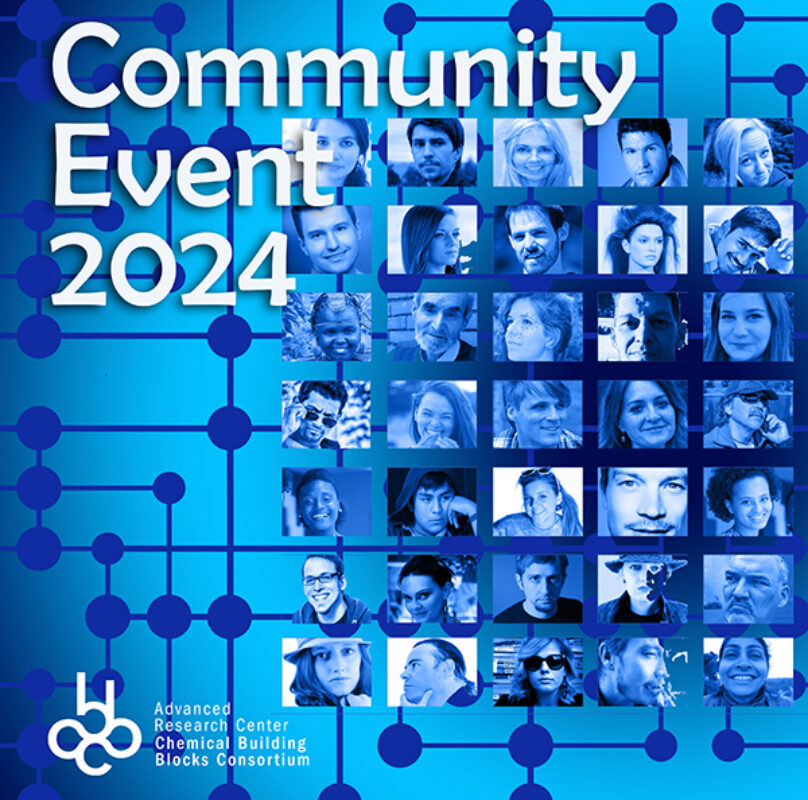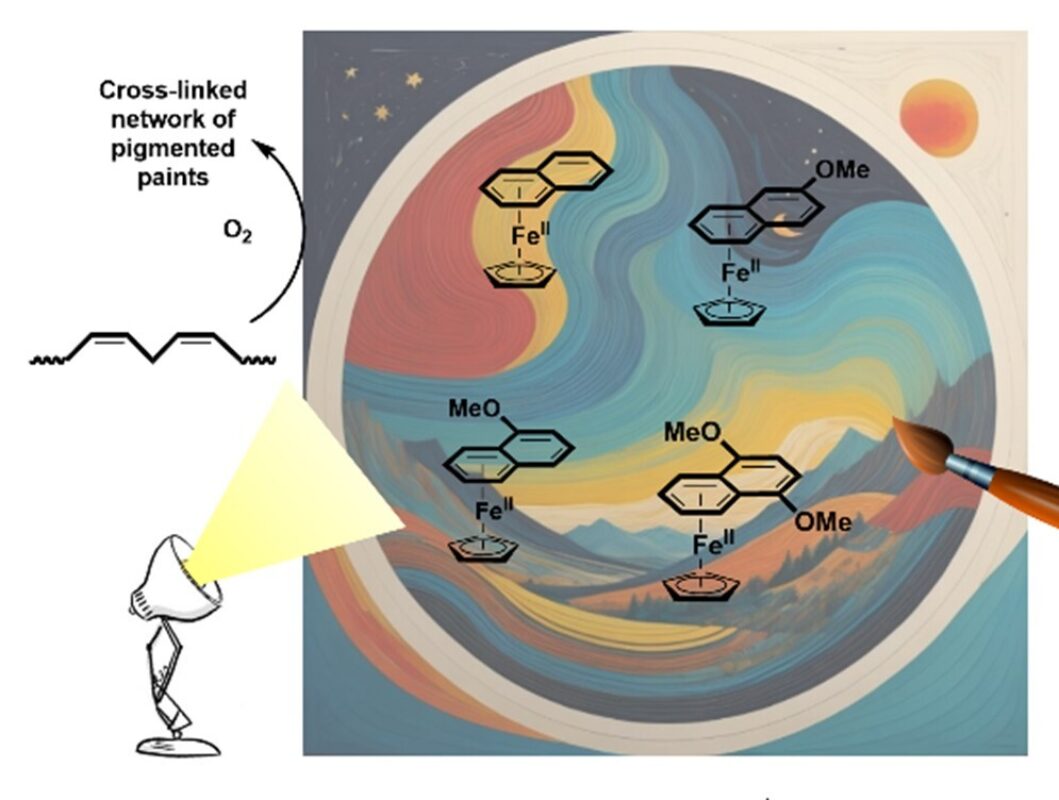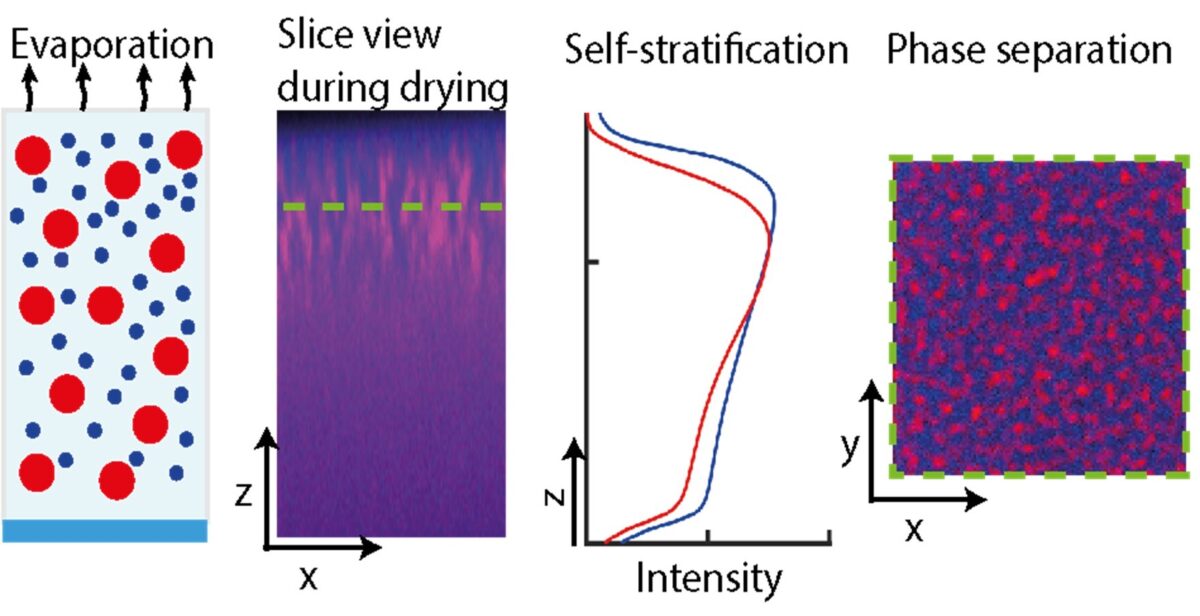
We are happy to invite the entire ARC CBBC community to the annual ARC CBBC Community Event on 15 October 2024 at Cursus- en vergadercentrum Domstad in Utrecht! registration is closed!
During this event, attendees from academia and industry from the ARC CBBC community all across the country get the opportunity to meet and present their work. Also, some new interactive elements have been added to this year’s program. So: an excellent opportunity to meet fellow researchers, exchange expertise and get up to date with the latest developments of the ARC CBBC research!
During the day, lunch, dinner and drinks will be provided. We also hope many of you will join us for dinner to end the day on a relaxed note.
Poster sessions
As you can see in the program, we will have poster sessions towards the end of the Community Event. We highly recommend all PhD candidates and postdoctoral researchers to participate in these poster sessions with your own poster, since this is a unique opportunity to present your work to scientists from both academia and industry. In addition to this, representatives from the Scientific Advisory Board will be attending. So don’t miss out on this opportunity!
Please note that, even though this is an event for only for the ARC CBBC community, your poster needs to be approved through Permission to Publish (permissiontopublish@arc-cbbc.nl), with the regular approval time. We would like to ask you to use the ARC CBBC poster template for your posters, which we will share with you in a separate e-mail.
Final details will be shared via e-mail a few weeks before the event. Also, keep an eye on this calendar item on the website for the latest updates.
Please be reminded of the fact that attending the Community Event is mandatory for all ARC CBBC PhD candidates and postdoctoral researchers.
For questions regarding the ARC CBBC Community Event, you can reach out to communication@arc-cbbc.nl.
We look forward to seeing you in Utrecht!
The program of the ARC CBBC Community Event 2024 is as follows:
09:00 Entry
09:15 Welcome
09:30 Lecture Atsushi Urakawa (TUD)
10:00 Interactive breakout sessions: Atsushi Urakawa (TUD), Peter Bolhuis (UvA) & Monique van der Veen (TUD)
10:45 Coffee break
11:15 Lecture Bas de Bruin (UvA)
11:45 Interactive breakout sessions: Michael Lerch (RUG), Matteo Monai (UU), Nikolay Kosinov (TU/e) & Eline Hutter (UU)
12:30 Lunch break
13:15 Lecture Ellard Hooiveld (WUR)
13:45 Interactive "meet the R&D" sessions Representatives from industry
14:45 Coffee break
15:00 Poster sessions
16:30 Drinks
TBA Dinner (expected to finish around 21:00)
Abstracts
Lecture: Atsushi Urakawa (TU Delft)
Title:
Chemical and engineering considerations in efficient CO2 activation and conversion
Abstract
The amount of CO2 from the flue gas released by industrial processes and our activities is in the order of tens of gigatons globally. This enormous amount clearly points out that, besides actively demonstrated CO2 sequestration technologies, we need to urgently develop highly efficient CO2 conversion technologies to close the carbon cycle by recycling the carbon contained in CO2 into a usable form. One of the most promising paths to valorise a great amount of captured CO2 is its catalytic conversion to largely demanded chemicals like fuels. However, general challenges are its efficient activation and selective conversion to desired products. Numerous catalysts are developed to date; however, achieving high conversion efficiencies are often hindered by the high thermodynamic stability of CO2 as well as by the unfavoured reaction kinetics and thermodynamics. This talk will present various chemical and engineering strategies for the efficient catalytic conversion of CO2 into chemical energy carriers, exploring how to manipulate thermodynamics and kinetics to optimise CO2 conversion processes.
Interactive breakout sessions round 1
Session 1: Atsushi Urakawa (TU Delft)
Title
Opportunities in CO2 activation and conversion
Abstract
This session discusses the current challenges and future opportunities of CO2 activation and selective conversion. Activation methods can be heat, electrons or photons among others. Fundamental as well as practical challenges are discussed.
Be creative and give some thoughts on how we can efficiently activate CO2 towards attractive molecules.
Session 2: Peter Bolhuis (UvA)
Title
Advancing Chemistry with Molecular Simulations
Abstract
Join us for an engaging session exploring the advantages and challenges of modeling chemical systems through molecular simulations. We will begin with a brief overview of how molecular simulations can enhance chemical research, their connections to experimental work, and their limitations. We will also discuss strategies to address these challenges, such as enhanced sampling techniques and machine-learned potentials. Following the introduction, participants will have the opportunity to engage in a discussion of case studies, bringing real-world examples for collaborative exploration and problem-solving. This session is designed to foster both knowledge-sharing and practical insights.
Session 3: Monique van der Veen (TU Delft), assisted by Michael Lerch (RUG)
Title
Intervision in supervision of thesis students
Abstract
As a PhD student or postdoctoral researcher supervision of bachelor and master thesis students is part of your job. Yet, you may feel confronted with situations that you feel underprepared for. Intervision is a method that allows you to reflect on and investigate such situations with your peers. We will work with you in a group on a few cases that you will bring in. You can think already about those. However, you can most certainly join without a case too.
Lecture: Bas de Bruin (UvA)
Title
Light-Triggered Reactions for Paint Curing
Abstract
In this presentation we report on our efforts to develop new, more sustainable methods for paint curing, based on photoactive Fe complexes. These catalysts offer an alternative to traditional cobalt salts, while simultaneously eliminating the need for anti-skinning agents. This is of industrial and societal relevance, because conventional both Co-based driers and the anti-skinning agent MEKO have potential health issues, and are hence under legislative EU REACH pressure regarding their application in professional and household alkyd-paints. Photo-activated Fe-complexes potentially offer a more sustainable approach to paint-curing.
We will also report on our efforts to use light-triggered carbene formation to induced paint-curing. This offers interesting alternatives to traditional paint curing.

Interactive breakout sessions round 2
Session 1: Eline Hutter (UU)
Title:
ChatGPT as science assistant?
Abstract
ChatGPT and other generative AI have recently emerged as a quick tool to generate text, images and codes. Therefore, these tools have the potential to accelerate scientific research. However, there are also limitations and concerns related to AI. In this interactive session, we will discuss setting, the use of AI in science, with a focus on ChatGPT. What are current policies of publishers and universities? What are the benefits and limitations? Would we like to change these policies or current practice? How can we, as group leaders, embrace AI?
Be prepared for an open discussion in which every viewpoint is of equal value. If you have examples that I can use in my slides (anonymously if you wish), please send it to E.M.Hutter@uu.nl
Session 2: Matteo Monai (UU)
Title:
"Publishing today: where are we going?"
Abstract
In this workshop, we will ask ourselves the questions: "what is Science?" and "why do we publish?"
We will start with a short introduction on the evolving landscape of scientific research, and the shift from passion-driven inquiry to a market-driven profession in the last century.
We will then discuss emerging trends in publishing, such as open science practices, and alternative manuscript formats which aim to tackle publishing bias.
In a fast-moving world, is there time for "slow science"?
In preparation for the workshop, the students can reflect on the questions, and look at the format of registered reports, and whether and how they could publish in this way.
https://www.nature.com/nature/for-authors/registered-reports
Session 3: Nikolay Kosinov (TU/e)
Title:
How Reliable are Structure–Performance Descriptors?
Abstract:
Francis Crick, co-discoverer of the DNA structure, famously said, "If you want to understand function, study structure." Over the past few decades, structure–performance relationships have become a cornerstone in chemistry for understanding how complex chemical systems function and for enhancing their performance. But this often empirical approach also has its limitations and pitfalls. Can we truly capture the performance of something as intricate as a heterogeneous catalyst with a single variable? How do we account for multivariate interactions and dynamic behaviours? In this interactive session, we will attempt to critically examine the appropriateness of one-dimensional structure-activity descriptors and discuss possible alternative approaches to better capture the complexity of the systems we study.
For a fruitful discussion, please consider examples from your field where structure–performance relationships (SPRs) have been both successful and unsuccessful. Reflect on why they were effective in some cases and why they may have failed in others. Consider the possible reasons behind these outcomes, such as the nature of the system, the complexity of the interactions, or the methods used to derive the relationships.
Session 4: Michael Lerch (RUG)
Title:
Sustainability games
Abstract:
Many decisions for more sustainable solutions, for example in the policy space, are difficult to take because of often complex and competing interests. To make this tangible and to play test different sustainability strategies, we will play 1-2 different existing sustainability games, which you may use yourself in your research group, for outreach, or with family. No preparation necessary, for anyone interest, have a look here: https://games4sustainability.org/
Lecture: Ellard Hooiveld (WUR)
Title:
Organize your coating: self-layering and phase separation during evaporation in binary colloidal films.
Abstract:
Drying multi-colloidal dispersions can cause demixing of the components during evaporation, offering a unique way to create multi-layer (waterborne) coatings from a single deposition. These layers can have distinct functionalities, significantly enhancing the coating's properties. To harness these separation pathways, it is crucial to understand the underlying mechanisms. In this study, we demonstrate this using a model system with two different particle sizes (~60 nm and 360 nm). By matching the refractive index of these particles with the dispersant, we can track their relative position during evaporation. We observe clear self-layering also known as self-stratification, where smaller particles deplete larger ones near the evaporation interface, leading to "small-on-top" stratification. This effect arises from steep concentration gradients during evaporation, as particle diffusion lags behind the evaporation front. Additionally, we detect lateral demixing, which we attribute to phase separation caused by depletion interactions between large and small particles at high concentrations. By adjusting initial volume fractions, evaporation speed, and particle interactions, we demonstrate control over these demixing phenomena. These insights open the door to using multi-colloidal dispersions to create tailored multi-layered coatings.

Interactive breakout sessions round 3: "Meet the R&D"
Session 1: Rob Gosselink (BASF)
Title
From R&D to Product Launch at BASF: How to support our customers becoming more sustainable?
Abstract:
BASF is world leader in the chemical industry based on its global R&D expenditure. Our inventions and great ideas will not result in anything if there is no demand from the customer for these new products. Therefore it is important to understand customer focus, but also developments in the whole value chain. During this interactive session we hope to give you some insight into the R&D process at BASF, from lab scale idea to product launch on kiloton scale, with the customer in mind and together work out a value chain analysis.
On June 11th we have had a very engaging site visit in Heerenveen during the ARC-CBBC summerschool where BASF’s strategy on sustainability was presented by yourselves. Therefore we expect that you are familiar with BASF in general and its position within the value chain. For a quick refresher you can have a look at BASF in four minutes - YouTube.
Session 2: Nicola Menegazzo (Shell)
Title:
Scaling up in the energy transition
Abstract:
The energy transition requires rethinking of the world’s energy system as it moves to lower emissions in next few, short decades. Technical solutions targeting different components of the net-zero puzzle are reported on (almost) a daily basis, yet only few leave the lab and fewer even make it to commercialization. Funding availability, unforeseen technical challenges and fierce competition are among the many reasons why breakthroughs never reach the market. Failure to envision the scale-up route is another, but unlike most others, researchers can proactively incorporate scale-thinking as part of their solution. Using batteries as a lens, we will explore some of the first and practical questions around supply chains that should be considered when working toward the next big breakthrough.
Session 3: Jitte Flapper (AkzoNobel)
Title:
R&D at AkzoNobel: differences with academia and tough challenges
Abstract:
Would you want to work in industry? A question that many young researchers will inevitably be faced with. It can be difficult to answer this question without a good idea of what R&D in industry typically entails. This session aims to give an impression of what questions researchers in an industrial environment are facing. We will illustrate some of the tough challenges by taking a hot topic -sustainability- and discussing some of the choices that must be made around this topic.
In this session we will give a small insight into R&D at AkzoNobel. Small, as time is limited, but hopefully it helps to get an idea of similarities and differences with the way of working within universities.
Please consider what you think R&D in AkzoNobel might look like. Also, think of anything you might not know but would like to know around this topic. This session is the perfect moment to ask everything you wanted to know but never dared.